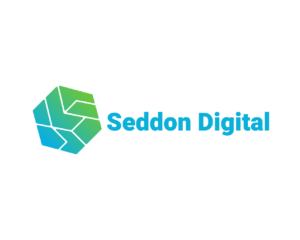10 Online Marketing Strategies Every Local Business Should Use in 2025
You’ve likely noticed how the digital landscape has transformed local business marketing, making it harder to stand out in your community. While you’re juggling day-to-day operations, your competitors are implementing sophisticated online strategies that capture local customers before they even walk past your storefront. The good news? You don’t need a Fortune 500 marketing budget to compete effectively in 2025. By focusing on ten proven digital marketing strategies, you’ll discover how to attract more local customers and build lasting relationships that drive sustainable growth.
Key Takeaways
- Optimise your Google Business Profile with accurate information, photos, and regular posts to dominate local search results.
- Create location-specific content and landing pages that incorporate local keywords and highlight community connections.
- Implement mobile-friendly website design and fast loading speeds to capture the 80% of local searches leading to conversions.
- Partner with local micro-influencers and businesses for authentic content creation and expanded community reach.
- Use email marketing with personalised local content and special offers to build customer loyalty and drive repeat business.
Optimise Your Local SEO Game
Local search engine optimisation is the cornerstone of any successful online marketing strategy for small businesses. If you want customers to find your business online, you’ll need to master the basics of local SEO to stand out in your community.
Start by conducting thorough local keyword research to understand what terms your potential customers are searching for. Instead of targeting broad terms like “coffee shop,” focus on specific phrases like “artisan coffee shop Melbourne.” You’ll face less competition and attract more relevant traffic!
Make sure your website is mobile-friendly and loads quickly – nobody likes waiting around for slow pages. With 80% of local searches leading to conversions, having a fast and responsive site is crucial for capturing potential customers.
Add structured data to help search engines understand your business hours, location, and services. Think of structured data as your website’s ID card that tells Google exactly who you’re and what you do.
Don’t forget to maintain consistent business information across all online platforms. Your name, address, and phone number should be identical everywhere they appear. With 46% of Google searches being local, optimising for local SEO is more critical than ever.
Master Social Media Marketing
Today’s social media landscape offers incredible opportunities for small businesses to connect with their local community. By implementing effective social media strategies across platforms like Facebook, Instagram, and TikTok, you’ll create meaningful connections with your target audience.
To master audience engagement, focus on creating authentic content that resonates with local customers. Share behind-the-scenes glimpses of your business, run engaging contests, and use location-specific hashtags to boost visibility. Remember, it’s not just about posting – it’s about building relationships! Real-time data from analytics tools empowers you to continuously refine and improve your marketing approach. Consider partnering with micro-influencers in your area who can authentically promote your business to their engaged followers. Moreover, a stale social media profile can deter potential customers, so it’s essential to maintain an active online presence that reflects your company’s current offerings and values Stale Social Media Profiles.
| Platform | Best Practices for Local Impact |
|---|---|
| Host community events, run targeted ads | |
| Create shoppable posts, use geotags | |
| TikTok | Share trending content, showcase products |
| Network with local businesses, share expertise | |
| Snapchat | Engage younger audiences, use local filters |
Track your performance using analytics tools to understand what content drives the most engagement. Don’t be afraid to experiment with different formats – from live videos to stories. Partner with other local businesses for social media takeovers and cross-promotions. By staying consistent and authentic in your approach, you’ll build a loyal following that supports your business’s growth.
Create Location-Specific Content
Creating content for your specific location goes beyond simple geography – it’s about weaving your business into the fabric of your community. To stand out locally, you’ll need to optimise your online presence with area-specific keywords and maintain an up-to-date Google My Business profile that accurately reflects your location details.
Start by researching what matters to your local audience. You can highlight nearby landmarks, promote local events, and showcase community partnerships that demonstrate your commitment to the area. For example, if you’re a coffee shop in downtown, mention the upcoming street festival or your collaboration with the neighborhood art gallery. Implement schema markup on your website to help search engines better understand and display your local business information.
Don’t forget to tap into local influencers who already have the community’s trust. These partnerships can amplify your message and help you reach new customers who might be interested in your products or services. Joining a BNI Chapter can help establish valuable networking connections with other local businesses. An important step in enhancing your visibility is to climb the local pack rankings by optimising your Google Business listing.
Share your content across multiple platforms, including local business directories and social media groups specific to your area.
Remember to encourage customer reviews and feedback – they’re invaluable for building credibility and helping you understand what resonates with your local audience. Reviews not only improve your reputation but can also boost your Google Business profile rankings, attracting higher-value clients.
Run Strategic PPC Campaigns
Through the power of Pay-Per-Click (PPC) advertising, small businesses can effectively target and reach local customers actively searching for their products or services. By implementing hyper local targeting, you’ll connect with people right in your neighborhood who are ready to buy. Start with thorough keyword research to understand what terms your potential customers are using when they search. Remember to keep your business information consistent across directories to maintain strong local search visibility. Voice assistants have transformed how people search locally, making it crucial to optimise for conversational queries.
| Strategy | Benefit | Action Step |
|---|---|---|
| Geotargeting | Reaches specific neighborhoods | Set radius around your location |
| Ad Extensions | Improves visibility | Add phone numbers and addresses |
| Local Keywords | Increases relevance | Include “near me” phrases |
| Landing Pages | Boosts conversions | Create location-specific content |
To maximise your PPC success, you’ll want to focus on creating campaigns that speak directly to your local audience. Consider using seasonal promotions that resonate with your community, like “Beat the Summer Heat” specials for an HVAC business. Don’t forget to track your results! Monitor your cost-per-click and conversion rates to ascertain you’re getting the best return on investment. With AI-powered optimisation tools becoming more accessible, you can now fine-tune your campaigns more effectively than ever. Once you’ve established a solid PPC strategy, it’s crucial to pivot towards building trust with customers by crafting an engaging website and showcasing your credibility online.
Build Email Marketing Relationships

While PPC campaigns help attract new customers, email marketing builds lasting relationships with your local audience. To get started, focus on growing your email list through strategic lead magnets like exclusive discounts, local guides, or VIP event access.
Remember, it’s not about collecting every email in town – it’s about connecting with people who truly want to hear from you. Participating in community events and activities helps naturally grow your subscriber base. Following proper data hygiene by regularly removing inactive emails will keep your list effective and engaged.
Email segmentation is your secret weapon for delivering personalised content that resonates. Break down your list based on customer preferences, purchase history, or location within your service area.
Then, craft messages that speak directly to each group’s interests. For example, send your downtown subscribers updates about upcoming street festivals, while notifying suburban customers about your new satellite location. As part of your strategy, invest in SEO for local visibility to enhance your reach among community members.
Make your emails feel more personal by showcasing local success stories, featuring customer testimonials, and highlighting community events.
Don’t forget to optimise for mobile viewing – most of your neighbours are checking emails on their phones! Set up automated sequences for welcome messages, birthday rewards, and purchase follow-ups to keep the conversation going without overwhelming your schedule.
With consistent, thoughtful communication, you’ll turn subscribers into loyal customers who can’t wait to hear from you.
Partner With Local Influencers
Today’s digital landscape makes local influencers powerful allies for small businesses looking to expand their reach. When you partner with these community voices, you’ll tap into their established networks and benefit from their authentic connections with local audiences.
Starting your influencer outreach is simpler than you might think. Search location-based hashtags on social media, join local Facebook groups, or use platforms like BuzzSumo to find influencers in your area. Once you’ve identified potential partners, evaluate their engagement rates and content quality to ascertain they’re a good fit for your brand.
Content collaboration can take many forms! You might invite influencers to try your products, host special events, or create sponsored posts that showcase your business. The key is maintaining authenticity – your chosen influencers should genuinely connect with your brand’s values and mission.
To ensure comprehensive digital strategy, consider hiring a web design agency that can provide broader expertise and resources. This can complement your influencer marketing efforts by providing a professional platform to showcase your collaborations.
To measure success, track specific metrics that align with your goals. Whether you’re aiming for increased brand awareness, website traffic, or direct sales, make sure you’re monitoring the right numbers.
Leverage Mobile-First Marketing

Mobile-first marketing has emerged as a game-changing strategy for local businesses, with over half of all website visits now coming from smartphones and tablets. To stay competitive, you’ll need to prioritise mobile user experience across all your digital platforms, starting with a responsive website that adapts seamlessly to any screen size.
Begin by optimising your Google Business Profile and local listings for mobile users who are searching on the go. You’d be surprised how many potential customers find local businesses while walking down the street or sitting in a coffee shop!
Next, focus on mobile website optimisation – make certain your pages load quickly, buttons are easily tappable, and content is readable without zooming. Think of your mobile site as a well-organised storefront window that invites people to step inside.
Don’t forget to leverage location-based mobile ads and social media marketing, where platforms like Facebook see 98% of users accessing content through mobile devices. Create mobile-friendly content that’s easy to share, and consider using geofencing to target potential customers in your area.
Harnessing the power of SEO marketing can also significantly improve your visibility on mobile search results, leading to increased leads and sales (effective strategies).
Establish B2B Local Networks
Building strong local B2B networks can multiply your business opportunities exponentially, creating a powerful ecosystem of partnerships and referrals.
You’ll want to start by identifying key industry events and networking opportunities in your area where you can connect with potential partners face-to-face.
To make the most of B2B collaborations, focus on creating valuable content that addresses specific pain points in your local business community.
Host webinars, share expert insights, and participate in industry-specific online forums where decision-makers gather. Don’t forget to leverage platforms like LinkedIn, where you can showcase your expertise and connect with other local businesses.
Make sure you’re visible at networking events, both online and offline. These gatherings are perfect opportunities to demonstrate your industry knowledge and build lasting relationships.
Remember to follow up with meaningful interactions – a quick email sharing a relevant article or introducing potential partners can go a long way.
You’ll also want to maintain an active digital presence through local SEO efforts and targeted content marketing.
This combination of personal networking and digital outreach will help you establish a robust local B2B network that drives sustainable growth. It’s also important to measure the success of your networking efforts and digital marketing strategies by monitoring key metrics using analytics tools.
Generate Customer Reviews

While strong B2B networks form the foundation of your local business relationships, customer reviews serve as powerful social proof that can amplify your online presence.
Think of reviews as your digital word-of-mouth marketing – they’re essential for building trust and improving your local SEO rankings.
To boost your review management strategy, make it super easy for happy customers to share their experiences.
Send follow-up emails with direct links to your Google Business profile or Yelp page, and don’t be shy about asking satisfied customers to spread the word!
Remember, though – offering incentives for reviews is like walking a tightrope, so always check platform guidelines first.
Your customer feedback is pure gold for marketing.
Feature those glowing testimonials on your website, transform them into engaging social media posts, and use them to showcase your best products or services.
This is where our Local Website Design service can make a significant difference, providing a platform to display these testimonials prominently.
When you get a negative review (hey, it happens!), see it as an opportunity to demonstrate your awesome customer service.
Respond promptly, address concerns professionally, and show potential customers that you care about making things right.
Your review strategy can make or break your local online presence – so make it count!
Track Marketing Analytics
Smart marketing decisions come down to understanding what works and what doesn’t. That’s why tracking your marketing analytics is vital for your local business’s success. With tools like Google Analytics 4, you’ll get clear insights into how customers interact with your website and respond to your marketing efforts.
Start by monitoring your website traffic and user behaviour patterns. Tools with robust data visualisation features make it easier to spot trends and understand complex information at a glance. Through user segmentation, you can divide your audience into specific groups based on their behaviours, allowing you to create more targeted marketing campaigns that really hit home.
Don’t worry if you’re new to analytics – many tools offer user-friendly interfaces and helpful tutorials. Focus on tracking essential metrics like conversion rates and revenue sources. These numbers will tell you which marketing channels are bringing in the most business. In addition to these strategies, consider incorporating white hat SEO practices into your marketing plan, as these can significantly boost your online visibility and improve your search engine rankings.
You can then adjust your strategy accordingly, putting more resources into what’s working and less into what isn’t. Remember, the goal isn’t just to collect data – it’s to use that information to make smarter decisions that grow your business!
Frequently Asked Questions
How Much Should a Small Local Business Spend on Online Marketing?
For your small local business, you’ll want to allocate 5-10% of your revenue to marketing, with most of that going to online efforts.
If you can, start with a minimum budget of at least $1,500 monthly, focused on what will move the needle fastest.
As you grow and see results, you can adjust your budget allocation upward, focusing on what’s working best for your business.
When Is the Best Time to Post Local Content on Social Media?
For best posting on social media, you’ll want to focus on weekday mornings.
Share your local content on Facebook between 9-10 a.m., Instagram from 7-8 a.m., and Twitter around 11 a.m.
Don’t forget that Friday’s a golden day for audience engagement across platforms!
While weekends aren’t ideal, you can still catch early birds on Saturday mornings from 8-10 a.m. on Facebook.
How Long Does It Take to See Results From Local SEO Efforts?
You’ll typically see your local SEO timeline unfold in stages, with initial movement in 4-8 weeks if you’ve got a claimed Google Business Profile.
More substantial results usually appear within 3-6 months, or longer if it’s a competitive sector, depending on key SEO ranking factors like your competition and website authority.
If you’re starting with a new website, expect a longer journey of 6-12 months, but established sites often see progress faster.
Which Online Marketing Strategy Provides the Fastest Return on Investment?
Among digital marketing strategies, paid advertising typically delivers the fastest ROI, as you’ll see results within days or even hours.
While content marketing builds long-term value, it’s slower to show returns.
You can quickly test and optimise paid ads on platforms like Google or Facebook, adjusting your budget and targeting in real-time.
For the speediest results, start with search ads targeting high-intent keywords in your local area.
Should Local Businesses Hire an Agency or Handle Marketing In-House?
Your choice depends on your business’s size, budget, and goals.
If you’ve got limited resources but need specialised expertise, an agency’s broad knowledge and ready-to-use tools might be your best bet.
However, if you want complete control and have time to develop skills, handling marketing in-house offers better brand understanding and flexibility.
You can also start in-house and partner with agencies for specific campaigns when needed.
Conclusion
You’re now equipped with powerful strategies to boost your local business’s online presence in 2025. By implementing these marketing tactics, from local SEO to customer review management, you’ll connect with more customers and drive real growth. Remember, success isn’t about using every strategy at once – start with what fits your business best, measure your results, and adjust as needed. Your digital marketing journey starts now!



